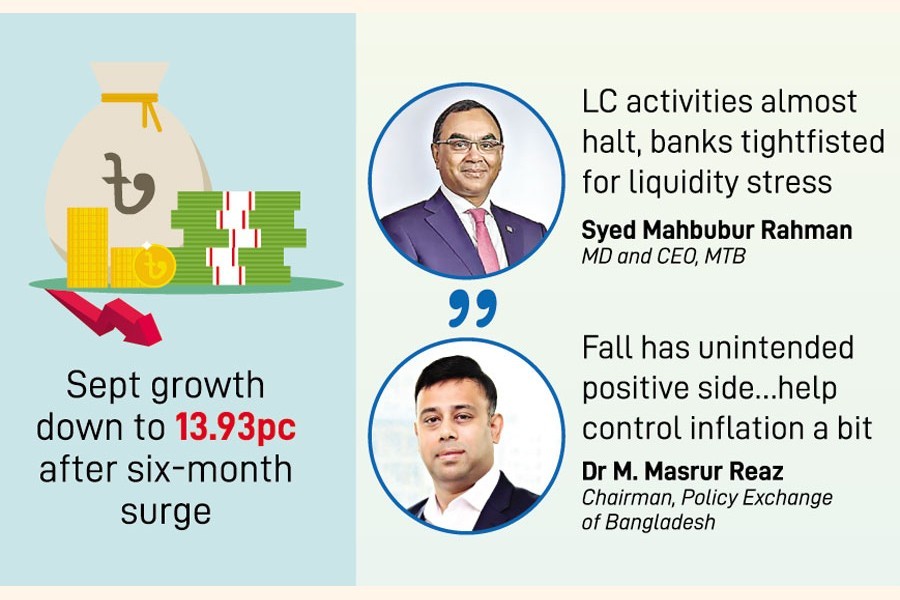Credit flow into private sector falls amid inflation combat through money-supply contraction and import tightening for forex dearth, among other reasons, economists say.
The private-sector credit growth declined to 13.93 per cent in September after surging for six consecutive months, official data show.
The decline comes at a time when the credit-growth rate was moving towards reaching Bangladesh Bank's targeted goal of 14.1 per cent for the fiscal year 2022-2023.
According to Bangladesh Bank (BB) data, the growth of formal credit to the private sector started rising last March when the rate was 11.29 per cent. Thereafter, the credit flow had been on an upturn since, growing in April to 12.48 per cent, May 12.94 per cent, June 13.66 per cent, July 13.95 per cent and in August to 14.07 per cent.
Financial-market analysts say the fall is a kind of reflection of the central bank's shift to contractionary monetary policy to squeeze the private-sector-credit growth designed to control the inflationary pressure on the economy.
They also say the BB's belt-tightening measures to protect foreign-exchange reserves by strictly monitoring LCs might be a prime cause behind the fall in private-sector credit growth.
Managing Director and Chief Executive Officer of Mutual Trust Bank Limited Syed Mahbubur Rahman told the FE that the activities linked with LCs came almost to a halt in recent times and the credit fall is a reflection of it.
At the same time, he said, the banks are careful in releasing funds amid the ongoing liquidity stress in the later part of calendar year as they need to maintain a good balance sheet.
"This might contribute to the fall. But we need to wait further because one month's statistics are not enough to understand the overall situation," he adds.
Chairman of local think-tank Policy Exchange of Bangladesh Dr M. Masrur Reaz thinks apart from LCs issues, the business confidence is probably not good right at the moment because of the disruption to the global supply chain caused mainly by the Russia-Ukraine war.
He notes that the industrial units could not go for full production because of ongoing shortage of power and gas. So, the affected industrialists might not show the courage to take credit from the banks under the current circumstances.
"This could be another reason. But the fall has unintended positive side in the short term as it will help control inflation a bit," he says about merit of the squeeze in money supply.
He mentioned that the private-sector credit growth was observed surging in recent months although the import of capital machinery and raw materials was not increasing accordingly.
"We're assuming that the businesses took more credits to cover higher rising costs of production because of the inflationary pressure."


